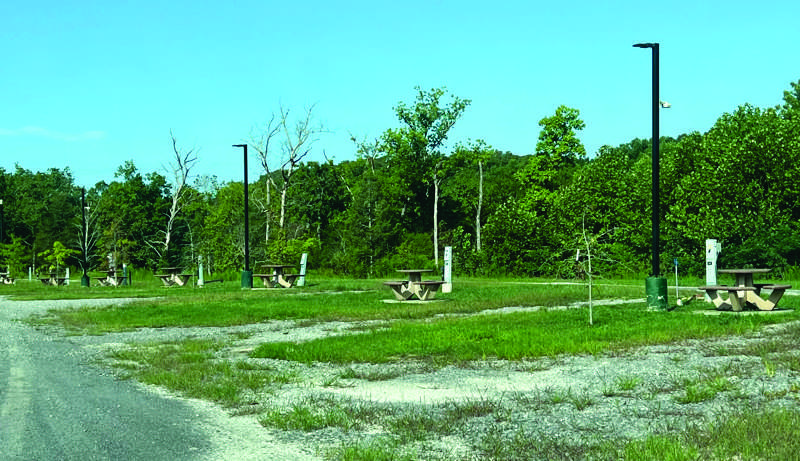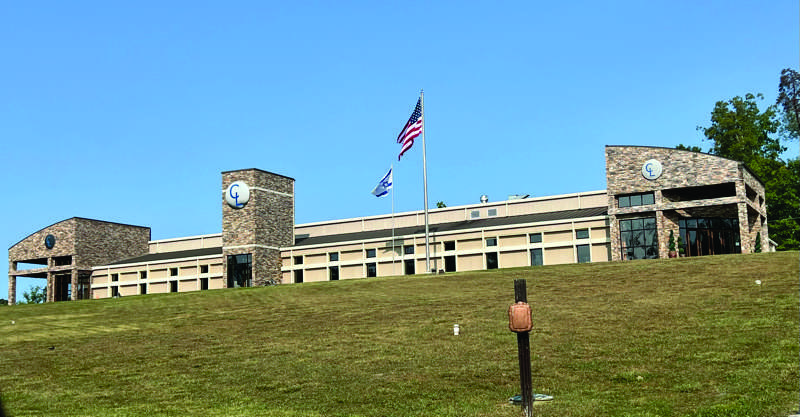Church cedes victory to Norris in RV park lawsuit
Covenant Life Church has agreed to settle its federal court case versus the city of Norris by accepting a permanent injunction that closed the church’s unauthorized recreational-vehicle park, and must pay all court costs associated with the lawsuit.
During a special called meeting last Wednesday evening, the Norris City Council approved a one-page document formally settling the lawsuit filed in U.S. District Court in Knoxville last year by the city seeking to shut down the so-called Solid Rock RV Park.
The church opened the RV park, with spaces for up to 16 vehicles, in 2019, without first getting a required zoning change, Planning Commission approval, and building permits from the city for the facility.
Last week’s “memorandum of understanding” settling the case was approved unanimously by the council, and then signed by both City Manager Charles A. Ledford and the legal representative for Covenant Life International, Inc., the owner of the church.
City Council members met in private with the city’s attorneys at the start of the Sept. 9 regular council meeting to discuss the ongoing lawsuit, and later in the meeting agreed to set a special meeting for Sept. 25 to act on the advice it received from its attorneys during the private meeting.
It was that advice that led the council to approve the memorandum that effectively ends the lawsuit and prevents the church from operating a campground/RV park on its campus in Norris.
In the memorandum, the church also agreed to pay all court costs, and to refrain from filing any other lawsuits or appeals against the city in connection with the illegal RV park.
Each side will pay its own attorneys’ fees in the case, the memorandum states.
Norris won a permanent injunction against the church from U.S. District Judge Charles E. Atchley Jr. in Knoxville on May 1 ordering the church to shut down the campground and remove the remaining recreational vehicles from the site.
The City Council on Aug. 12 denied for the second time an application from Covenant Life for rezoning of a portion of its Norris campus for use as an RV park, an application that came more than five years after the park had already been constructed and opened for business.
The council voted 4-0 to deny approval of an ordinance that would have rezoned a 3.3-acre parcel of the church’s 17.6-acre campus to C2, a general commercial zone.
Norris contended that RV parks and trailer parks are permitted in C2 zones, but are not allowed in the P1 professional/civic zone that covers the church property now.
There were no representatives of Covenant Life Church – not even its own attorney – present for either a 5:30 p.m. public hearing on the request or the 6 p.m. council meeting Aug. 12, during which the council voted on the measure.
Five Norris residents spoke during the public hearing in opposition to the rezoning request, saying that the area along Norris Freeway (U.S. 441) needed to be kept non-commercial.
The church was given two opportunities to persuade the council to approve the rezoning, once during the July 8 council meeting and again during the regular August meeting.
This was the council’s final vote on the issue regarding the Solid Rock RV Park, which Covenant Life opened in 2019.
After operating the RV park illegally for nearly five years, the church finally shut it down May 31 after receiving the order from the U.S. District Court. The church then filed a rezoning request with the city, which it had steadfastly refused to do before.
In an unusual move after the rezoning request failed at the July 8 council meeting, Mayor Chris Mitchell got the council’s permission to schedule the public hearing and another vote on the request for the August meeting.
On July 8, Mitchell and council members Loretta Painter and Will Grinder voted to reject the ordinance on first reading. The other two council members, Bill Grieve and Chuck Nicholson, were absent.
Painter said she would not be able to attend the Aug. 12 hearing and meeting, but Nicholson and Grieve were in attendance.
The church’s lawyer, Daniel Sanders of Knoxville, said during the July 1 Norris Planning Commission meeting that the July 8 council meeting was not convenient for church representatives to attend.
Sanders requested that the vote be delayed until the August meeting, during which he indicated that he and supportive church members would attend. None of them did.
On July 1, the Planning Commission voted 7-0 against the rezoning, citing documents from 1937 and 1959 in which the Tennessee Valley Authority required that the land along Norris Freeway from Andersonville Highway to beyond Norris Dam be preserved as a greenway, and not be used for commercial purposes.
Mitchell, who supplied the Planning Commission with the documents, led the discussion at the Planning Commission and again during the July 8 council meeting, during which he cited protection of the Norris Freeway greenway as the reason the church’s rezoning should be denied.
“The city and TVA have valued this as a special area,” Mitchell said before the vote on the rezoning request at the Planning Commission, adding that the “intent is to keep the area beautiful.”
Also cited during the Planning Commission discussion was the recently created Norris Freeway Scenic Byway, part of a state/federal program that gives special recognition and protection to certain designated scenic routes from development and commercialization across the United States.
The rezoning request from the church came in early June after the church had cleared the last of the RV trailers from the 16-space pull-though campsites by May 31, as required by the federal court order issued May 1.
The church, at the northwest corner of Andersonville Highway and Norris Freeway (U.S. 441), opened the facility initially as the Solid Rock RV Park, which it later renamed the Solid Rock Retreat, before being shut down by the court order.
It was only after that order was issued that the church decided to follow the city’s regulations, and asked Norris to rezone the site to allow for the campground.
The church’s request would have resulted in rezoning of the area carved out earlier for the RV park on the church’s property along Andersonville Highway and Norris Freeway.
Although the church’s attorney acknowledged that the RV park initially charged campers for staying on the site, he said that after the city made an issue of that, the church began accepting donations from campers, rather than directly charging them overnight fees.
He told the Planning Commission, however, that the church might go back to operating the campground as a commercial enterprise if the rezoning is approved. The church would also collect hotel/motel taxes on those fees, which would be turned over to the city, he noted.
While it was operating commercially, the church charged campers $800 a month for each RV site, and advertised the park on its own website, where people could reserve a space and pay for it online.
On Monday, all of the RV sites were still in place, but vacant. Each site was set up initially with full hookups for water, sewer and electricity.
There also was a bathhouse built for the park, but the church tore that down in April.
City officials said the church did not even get a permit to tear it down.



